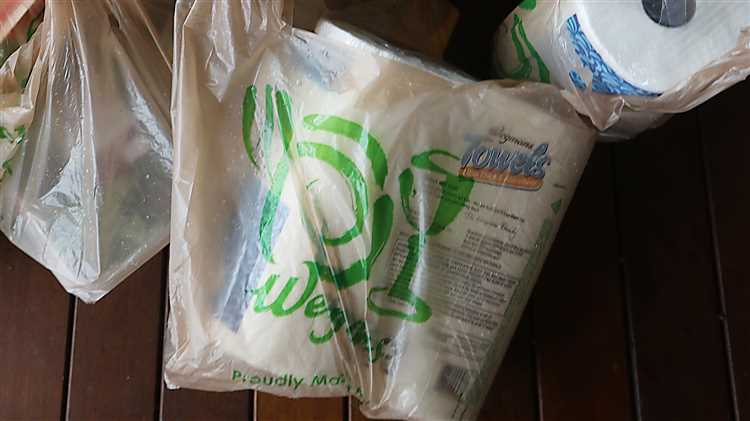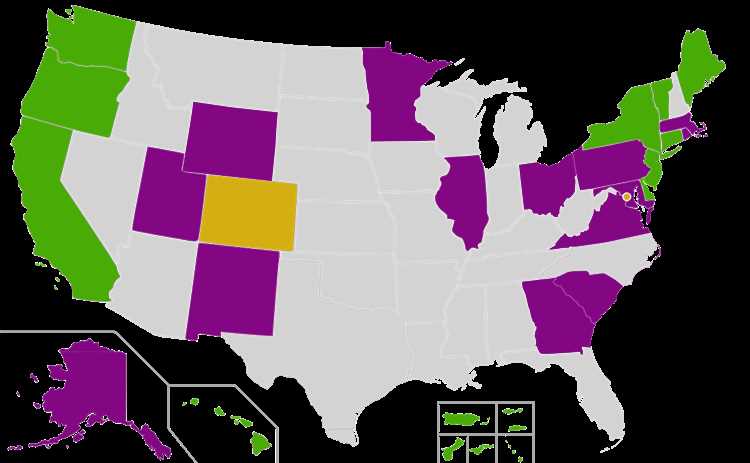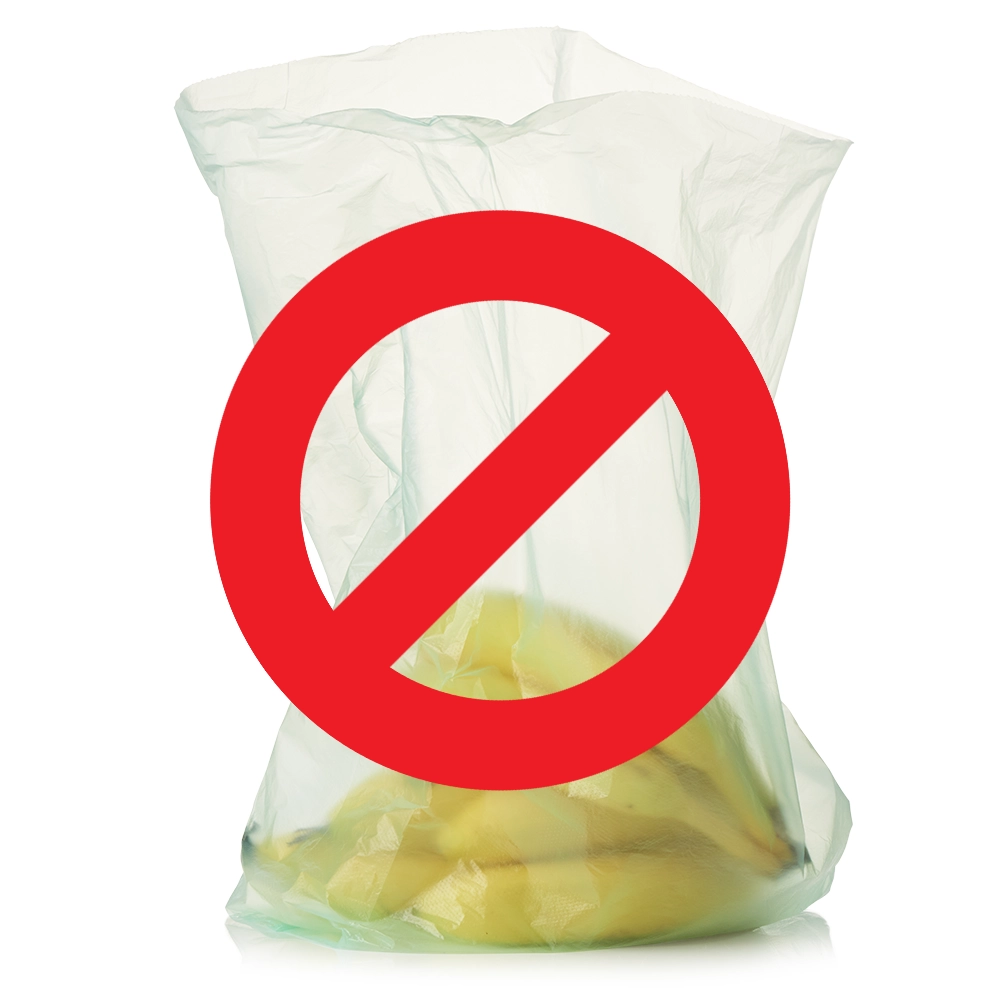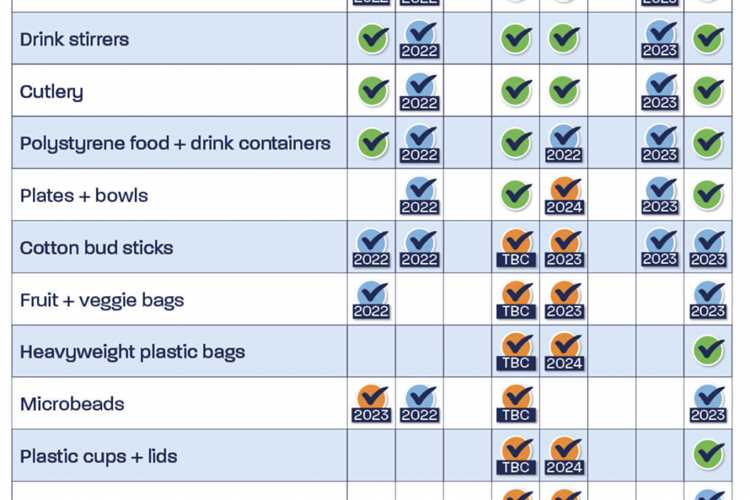
Plastic bags have long been a convenience for shoppers and retailers alike, but their detrimental impact on the environment has forced many states to take action. In an effort to reduce pollution and encourage sustainable practices, several states have introduced legislation to ban plastic bags by the year 2024. These bans aim to shift consumers towards more eco-friendly alternatives, such as reusable bags, and promote a greener future for generations to come.
One state leading the charge is California, which implemented its ban on single-use plastic bags in 2016. This landmark legislation marked a significant step towards reducing plastic waste, and other states have since followed suit. Hawaii, for example, became the first state to ban plastic bags back in 2015, recognizing the importance of addressing this pressing environmental issue.
With the growing recognition of the harmful consequences of plastic bags on ecosystems and wildlife, more states have taken action to join the movement towards sustainability. New York, for instance, passed a ban on plastic bags in 2020, with the goal of reducing plastic waste that has plagued the state’s landfills and waterways.
The momentum continues to build as additional states commit to phasing out plastic bags in the coming years. Oregon, Connecticut, and Delaware have all passed legislation banning plastic bags by 2024, joining a growing list of states that are proactively addressing the plastic pollution crisis. These bans reflect a shift in public awareness and a collective effort to protect the environment.
California

California was the first state in the United States to ban single-use plastic bags. The ban went into effect in 2016 and applies to most grocery stores and pharmacies. The goal of the ban is to reduce the environmental impact of plastic bags and encourage the use of reusable bags.
The ban initially faced opposition from some plastic bag manufacturers and convenience store owners, who argued that the ban would lead to job losses and increased costs for consumers. However, supporters of the ban highlighted the negative effects of plastic bags on wildlife and the environment, including their contribution to pollution and the harm they cause to marine life.
Since the ban was implemented, many Californians have transitioned to using reusable bags or opting for paper bags, which are available for a small fee. The ban has been largely successful in reducing the number of plastic bags in circulation and increasing awareness about the importance of sustainable practices.
California’s ban on plastic bags has served as a model for other states and countries looking to enact similar legislation. It has also prompted several cities and municipalities within the state to implement their own bans or restrictions on single-use plastic bags.
Key points:
- California was the first state to ban plastic bags in 2016.
- The ban applies to most grocery stores and pharmacies.
- Opponents of the ban argue it will lead to job losses and increased costs for consumers.
- Supporters highlight the negative impact of plastic bags on wildlife and the environment.
- The ban has been successful in reducing the number of plastic bags in circulation.
- Other states and countries have looked to California as a model for similar legislation.
Overall, California’s ban on plastic bags has been a significant step towards reducing plastic waste and promoting more sustainable practices. It has helped raise awareness about the environmental impact of single-use plastics and has inspired other regions to take action.
Oregon
Oregon is one of the states that has taken a strong stance against single-use plastic bags. In recent years, the state has implemented a series of efforts to reduce plastic waste and encourage sustainable practices.
Ban on Single-Use Plastic Bags: In 2019, Oregon passed legislation to ban single-use plastic bags in most retail establishments. This ban will go into effect on January 1, 2022, and will apply to grocery stores and retailers with more than 10,000 square feet of space.
Promoting Reusable Bags: Alongside the plastic bag ban, Oregon is also actively promoting the use of reusable bags. The state encourages individuals to bring their own bags when shopping and offers incentives for doing so.
Exceptions and Alternatives:
While the ban on single-use plastic bags is comprehensive, there are a few exceptions. Certain types of bags, such as those used for bulk items, prescriptions, and meat, are exempt from the ban. Additionally, retailers are allowed to provide recyclable paper bags for a small fee.
Environmental Impact:

The ban on plastic bags in Oregon is expected to have a significant positive impact on the environment. By reducing the use of single-use plastics, the state aims to decrease pollution, protect wildlife, and promote a cleaner and more sustainable future.
Oregon’s commitment to banning plastic bags aligns with the growing global movement towards reducing plastic waste. By implementing such measures, the state sets an example for others and paves the way towards a greener and more eco-friendly society.
Washington

Washington is a state in the Pacific Northwest region of the United States. It is known for its diverse natural beauty, with mountains, forests, and coastlines. The state has also been at the forefront of environmental conservation efforts and has taken steps to reduce plastic waste.
In 2021, Washington became the latest state to ban single-use plastic bags. The ban, which goes into effect in 2024, prohibits retailers from giving out plastic carryout bags to customers. Instead, customers are encouraged to bring their own reusable bags or purchase paper bags for a small fee.
This ban is part of Washington’s ongoing efforts to protect its environment and reduce plastic pollution. Plastic bags are a significant source of litter and can harm wildlife when they end up in waterways and ecosystems. By implementing this ban, Washington aims to encourage the use of more sustainable alternatives and reduce plastic waste.
To support the transition away from plastic bags, the state has also invested in education and outreach programs. These initiatives aim to raise awareness about the environmental impacts of plastic bags and provide resources for individuals and businesses to make sustainable choices.
Overall, Washington’s ban on plastic bags is a significant step towards a more sustainable future. It exemplifies the state’s commitment to environmental conservation and sets an example for other states to follow. By reducing the use of plastic bags, Washington is working towards a cleaner and healthier environment for all.
New York
New York is one of the states in the United States that has taken significant steps to reduce plastic waste. In March 2020, the state introduced a law banning plastic bags. The ban included most types of single-use plastic bags, including those provided by grocery stores, retail shops, and pharmacies.
The ban was implemented to address the environmental concerns associated with plastic bags. Plastic bags are not biodegradable and can take hundreds of years to break down. They often end up in landfills or as litter in the environment, where they can harm wildlife and contribute to pollution.
While the ban has been met with some resistance, it has also been widely supported. Many New Yorkers have embraced alternatives to plastic bags, such as reusable bags or paper bags. The state has also encouraged the use of sustainable alternatives by offering discounts on reusable bags and providing reusable bags to low-income residents.
New York’s ban on plastic bags is part of a larger effort to reduce single-use plastic consumption. The state has also implemented restrictions on plastic straws and is considering additional measures to limit the use of other single-use plastics.
In addition to reducing plastic waste, the ban on plastic bags has had other positive impacts. It has helped stimulate the economy by creating job opportunities in the manufacturing and distribution of reusable bags. It has also improved the aesthetic value of the state by reducing litter and creating cleaner communities.
Overall, New York’s ban on plastic bags is a crucial step towards a more sustainable future. It sets an example for other states and countries to follow in their efforts to protect the environment and reduce plastic waste.
Maine
Maine is one of the states that has taken action to reduce the use of plastic bags. In April 2019, Governor Janet Mills signed a bill banning single-use plastic bags across the state. The ban is set to take effect on April 22, 2020, which also happens to be Earth Day.
Under the new law, any business that sells goods and uses bags for packaging purposes is prohibited from providing customers with single-use plastic bags. Instead, customers are encouraged to bring their own reusable bags or choose paper bags, which will still be available but may come with a small fee.
This move is part of Maine’s efforts to reduce plastic waste and protect the environment. Plastic bags are known to contribute to pollution, harm wildlife, and take hundreds of years to decompose. By banning plastic bags, Maine aims to encourage a shift towards more sustainable alternatives and raise awareness about the negative impact of single-use plastics.
Vermont
In an effort to reduce plastic waste and protect the environment, Vermont has banned single-use plastic bags. Starting from July 1, 2020, retailers in Vermont are prohibited from distributing plastic carryout bags to customers.
This ban applies to all businesses, including grocery stores, convenience stores, and retailers. However, certain exceptions apply. For example, plastic bags for bulk items, prescription drugs, and vegetables are still allowed.
Vermont encourages consumers to bring their own reusable bags when shopping. By doing so, individuals can contribute to reducing plastic pollution and creating a cleaner and healthier environment.
The state of Vermont is committed to transitioning towards more sustainable alternatives. By banning plastic bags, they are taking a significant step towards achieving their environmental goals.
Q&A:
Which states have banned plastic bags by 2024?
As of 2024, several states in the United States have implemented a ban on plastic bags. These states include California, New York, Connecticut, Delaware, Hawaii, Maine, Oregon, Vermont, and Washington. Each state has its own specific regulations and timelines for the ban.
Why did these states ban plastic bags?
These states have banned plastic bags in order to reduce environmental pollution and promote sustainability. Plastic bags are known to contribute to plastic waste, which takes years to decompose and can harm wildlife and ecosystems. By implementing a ban, these states are encouraging the use of reusable bags and promoting a shift towards more eco-friendly alternatives.
Are there any exemptions to the plastic bag ban?
Yes, there are often exemptions to the plastic bag ban depending on the state. These exemptions may include certain types of bags, such as those used for prescription medications, loose produce, or meat. Additionally, some states may allow retailers to provide plastic bags for a small fee or require the use of compostable or biodegradable bags instead.
How will the plastic bag ban be enforced?
The enforcement of the plastic bag ban varies from state to state. In general, retailers are responsible for complying with the ban and may face fines or penalties for non-compliance. The specific enforcement measures can include inspections, warnings, or monetary penalties. Some states may also provide educational resources and assistance to help retailers transition to alternative packaging solutions.